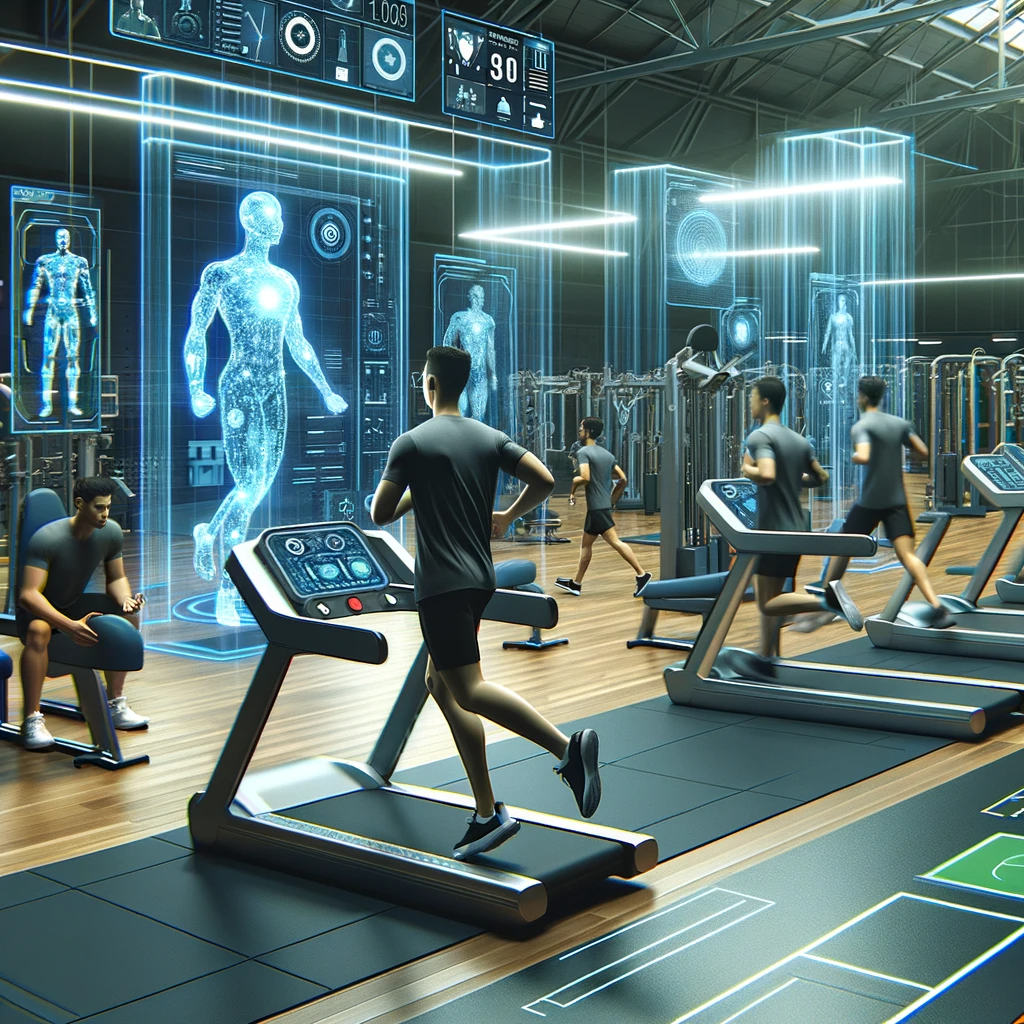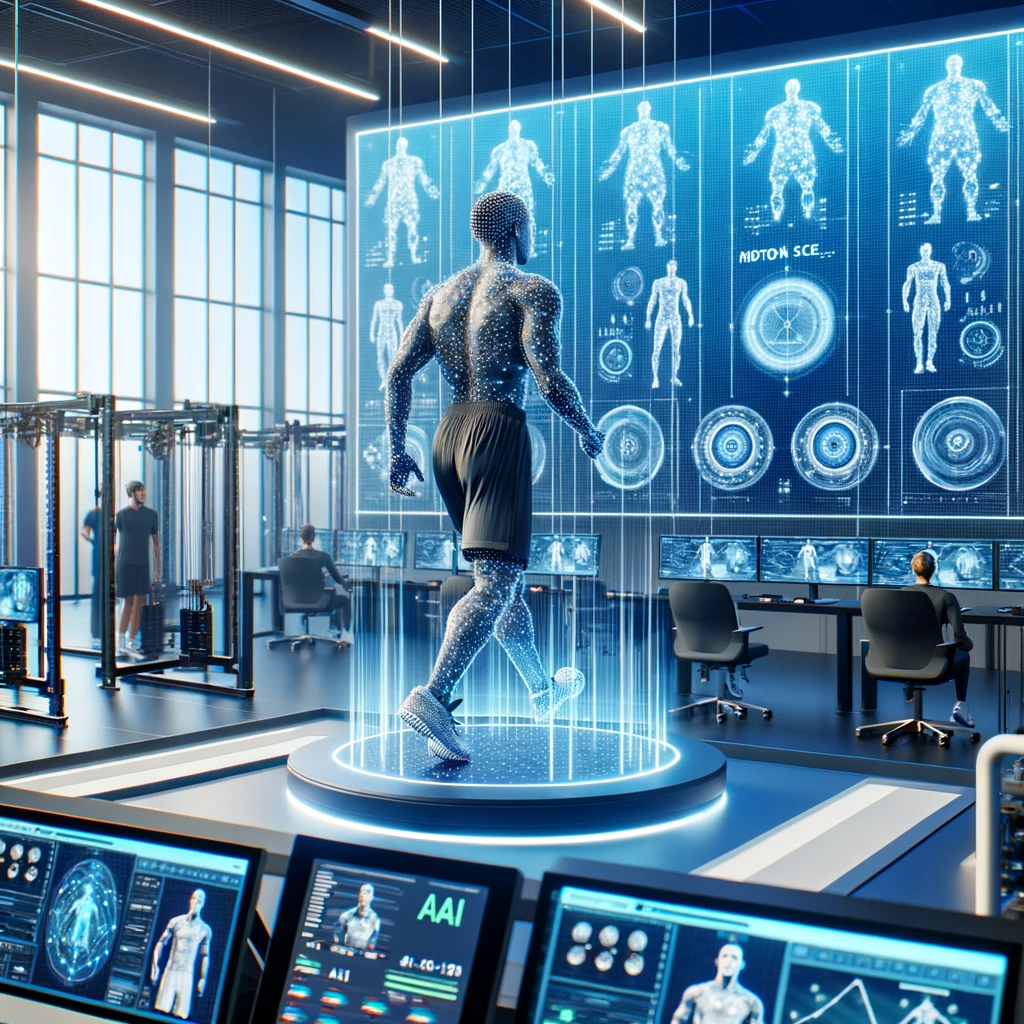In the world of sports, achieving peak performance has always been a relentless pursuit. Athletes and coaches are constantly seeking ways to gain a competitive edge, and today, Artificial Intelligence (AI) is emerging as a game-changer. This two-part article takes you on a journey through the transformative impact of AI in sports and athletic training, exploring its applications, benefits, and how it’s reshaping the way athletes prepare, compete, and recover.
AI in Sports Performance Analysis
Enhancing Player Performance
AI-powered analysis systems capture every moment of a game, providing valuable insights into player performance. From tracking player movements to assessing game strategies, AI helps coaches make data-driven decisions and fine-tune their team’s approach.
Injury Prevention
AI doesn’t just analyze what happens during a game; it can predict and prevent injuries. By monitoring player movements and physiological data, AI algorithms identify injury risk factors, allowing teams to intervene before a minor issue becomes a major setback.

AI in Athletic Training
Personalized Workouts
Gone are the days of one-size-fits-all training programs. AI tailors workouts to each athlete’s unique needs and goals. Whether it’s strength training, conditioning, or skill development, AI maximizes training efficiency.
Recovery Optimization
Rest and recovery are crucial for athletes, and AI helps optimize these periods. By analyzing biometric data and sleep patterns, AI suggests ideal recovery strategies, ensuring athletes are in peak condition when it matters most.
Benefits of AI in Sports and Athletic Training
Data-Driven Decisions
AI provides coaches and athletes with a wealth of data for informed decision-making. This leads to better strategies, enhanced performance, and a deeper understanding of the game.
Injury Reduction
Preventing injuries not only keeps athletes in the game but also saves teams time and money. AI’s injury prediction capabilities are invaluable for both players and organizations.
Performance Improvement
By personalizing training regimens, AI helps athletes reach their full potential. It identifies strengths and weaknesses, allowing athletes to focus on areas that need improvement.
Competitive Advantage
In sports, a fraction of a second can be the difference between victory and defeat. AI-driven insights offer a competitive edge that can make all the difference in high-stakes competitions.
AI in Action: Transforming Sports
Performance Analytics in Basketball
Case Study: NBA’s Use of AI
The National Basketball Association (NBA) has embraced AI to enhance player performance analysis. AI systems track player movements, shot accuracy, and team strategies in real-time. Coaches use these insights to make instant decisions during games and tailor training regimens for individual players. The result? A more dynamic and data-driven approach to basketball.
Smart Tennis Coaching
Case Study: IBM’s Watson in Tennis
IBM’s Watson, an AI-powered system, is changing the way tennis players prepare for matches. By analyzing vast amounts of data, including historical match records, player behavior, and environmental conditions, Watson provides personalized strategies and insights to players and coaches. This AI-driven approach has helped players make smarter decisions on the court.
The Impact on Coaching
Augmented Coaching
AI is augmenting the role of coaches, providing them with a wealth of data and insights to guide their decisions. Coaches can now fine-tune training plans, tailor strategies, and make real-time adjustments based on AI-generated recommendations.
Injury Prevention and Management
Coaches and medical staff use AI to monitor player health and identify early signs of injuries. AI-driven tools assist in injury prevention by providing recommendations for player load management and recovery strategies.
Ethical Considerations and Challenges
Data Privacy
The extensive data collected for AI analysis raises concerns about player privacy. Striking a balance between data collection and privacy protection is an ongoing challenge in sports analytics.
Algorithmic Bias
AI algorithms must be carefully developed and monitored to avoid biases that could impact player evaluations and decisions. Fairness and transparency are critical considerations.
Data Security
Protecting the vast amounts of sensitive athlete data generated by AI systems is paramount. Ensuring secure storage and transmission of this data is a significant challenge.

Adaptation and Resistance
Adopting AI in sports may face resistance from traditionalists who believe in more traditional coaching methods. Convincing stakeholders of AI’s value can be challenging.
The Future of Sports and AI
The synergy between sports and AI is set to grow. As technology advances, AI will become even more integrated into sports, from analyzing game strategies to enhancing fan experiences. Athletes and coaches will continue to rely on AI-driven insights for improved performance.
Conclusion
Artificial Intelligence is revolutionizing the world of sports and athletic training. From performance analysis to injury prevention and personalized coaching, AI is transforming how athletes prepare, compete, and recover. While ethical considerations and challenges remain, the benefits of AI in sports are undeniable, offering a competitive edge and a data-driven approach to success.
As AI continues to shape the landscape of sports, we can expect to see more innovation and collaboration between technology and athletics, ultimately raising the bar for athletic achievement and sporting excellence.